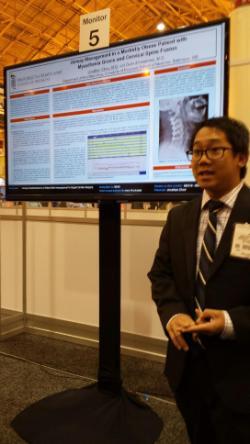
All critical care fellows are allotted ample time to pursue scholarly activities and the faculty are highly supportive of these endeavors. The fellows have a professional development/education fund that can be used to attend meetings or to purchase educational materials.
The Shock, Trauma, and Anesthesiology Research organized research center (STAR-ORC) is a world-class, multi-disciplinary research and educational center focusing on neurological injuries, critical care, organ support, resuscitation, surgical outcomes, and injury prevention. It serves as the research umbrella for the Department of Anesthesiology and the Program in Trauma. Each fellow will have an assigned mentor who is a member of the Critical Care Anesthesiology faculty. The fellows will have a defined project and will be expected to submit findings for presentation at grand rounds or at a national meeting, typically the annual Society of Critical Care Medicine or Society of Critical Care Anesthesiologists meeting. Areas of active investigation in the division include coagulation and hemostasis, end points of resuscitation, aeromedical critical care, and rescue therapy for vasoplegic shock.
